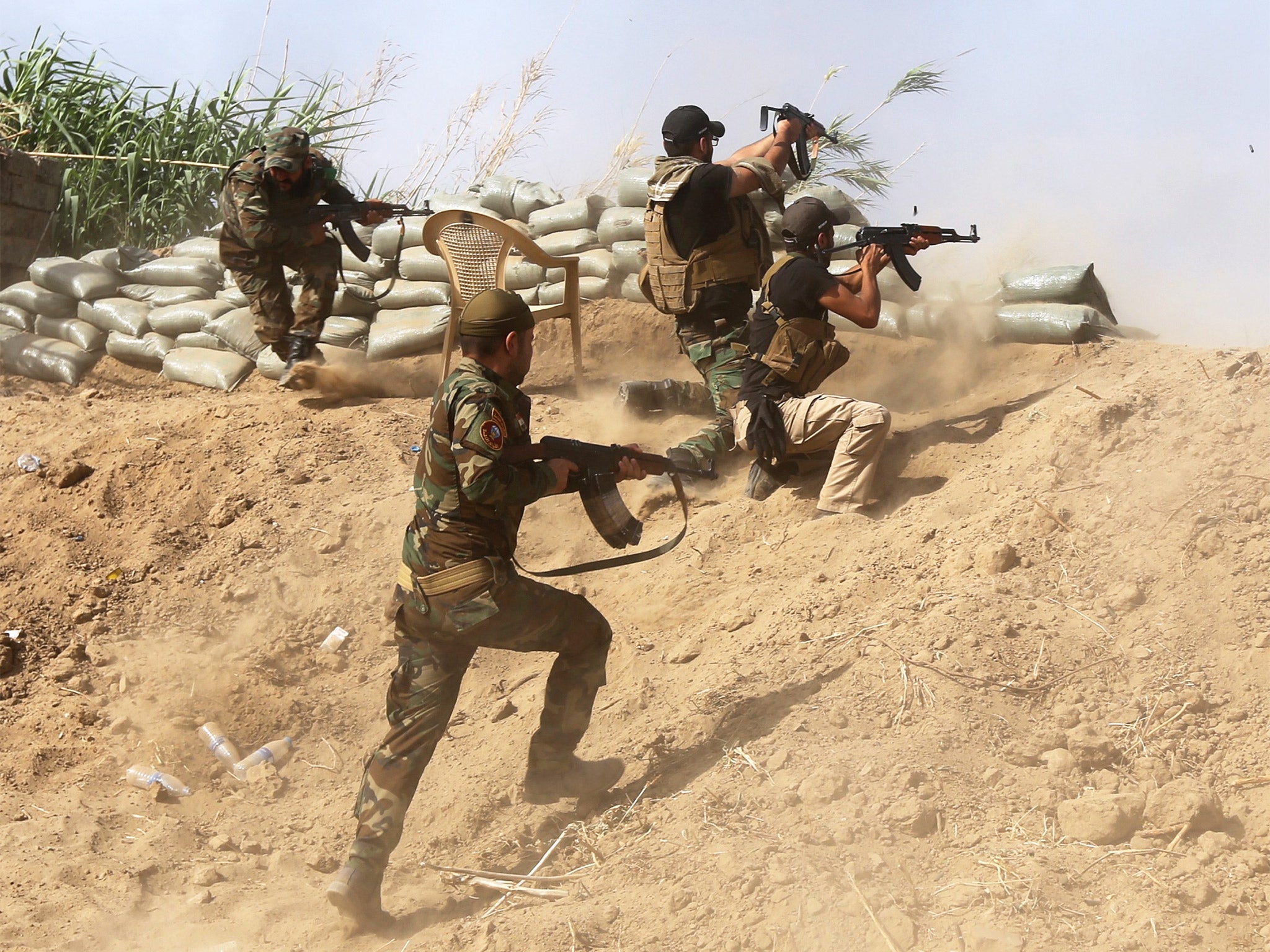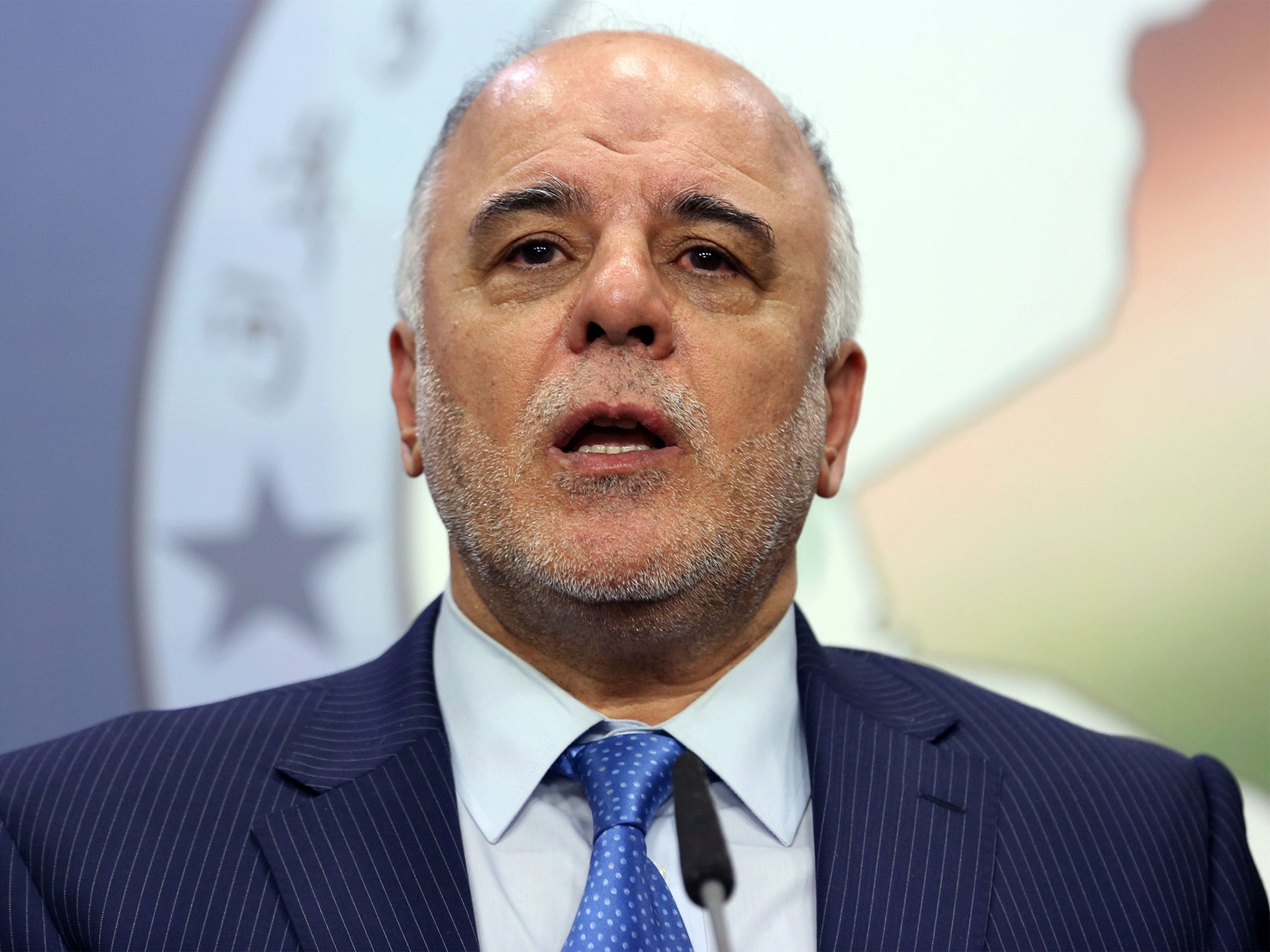Isis seizes Ramadi: Iraqi forces backed by Shia militias launch operation to remove jihadists from Anbar province
A spokesman for one of the main Shia mobilisation forces said the Anbar operation will 'not take long'

Your support helps us to tell the story
From reproductive rights to climate change to Big Tech, The Independent is on the ground when the story is developing. Whether it's investigating the financials of Elon Musk's pro-Trump PAC or producing our latest documentary, 'The A Word', which shines a light on the American women fighting for reproductive rights, we know how important it is to parse out the facts from the messaging.
At such a critical moment in US history, we need reporters on the ground. Your donation allows us to keep sending journalists to speak to both sides of the story.
The Independent is trusted by Americans across the entire political spectrum. And unlike many other quality news outlets, we choose not to lock Americans out of our reporting and analysis with paywalls. We believe quality journalism should be available to everyone, paid for by those who can afford it.
Your support makes all the difference.Iraq government forces and Shia militias have launched a renewed operation to remove Isis from Anbar province following the humiliating loss of the provincial capital, Ramadi, last week.
The announcement of the offensive came after the Iraqi Prime Minister, Haidar al-Abadi, said Iraqi forces would retake Ramadi within days.
Isis now controls much of Iraq’s western Anbar province which borders Syria, where the group also seized the city of Palmyra last week.
Karim al-Nouri, spokesman and commander with the Shia Badr organisation, told The Independent by phone from the battlefield that the Anbar operation began early on 26 May and that troops were heading toward Ramadi from three sides, but were not yet close.
He added that militiamen are fighting alongside the Iraqi army. “Our morale is high,” he added as gunfire could be heard in the background.
A spokesman for the predominantly Shia popular mobilisation forces known as Hashid Shaabi said the Anbar operation was being led by their forces alongside the army, and added that it will “not take long”. Ahmed al-Assadi said: “The operation’s goal is to liberate those regions between Saladin and Anbar and try to isolate the province of Anbar.” He added that the goal was to open a route for pro-government forces to reach Anbar across the desert from the Tigris valley province of Saladin.
The fall to Isis of Ramadi, 60 miles west of Baghdad, was a huge blow for Iraqi forces and forced the government to allow Shia militias to join the battle for the province. But their deployment in majority Sunni Anbar has raised fears of sectarian attacks. Human rights groups have reported abuses by Shia militias in other liberated areas of Iraq, a charge they deny.

Amid these fears, the openly sectarian name of the new operation was seen by many as a bad omen. The title for the operation, Labayk Ya Hussein (At your service, O Hussein), is a term of respect for a revered figure in Shia Islam, whose death in a seventh-century battle is one of the main points of schism between Sunni and Shia Muslims.
The Iraqi government forces have come under huge pressure in the fight against Isis, despite their greater numbers. In Ramadi, 200 Isis fighters are believed to have taken the city from 10 times that number of government forces.
Following the Ramadi defeat, the US Defence Secretary, Ash Carter, enraged Iraqi politicians by saying the Iraqi army had showed “no will to fight”, with Mr Abadi saying he had the “wrong information”. On Monday the US Vice President, Joe Biden, called Mr Abadi to stress Washington’s support for Iraq in the face of Isis assaults. Yesterday a Pentagon spokesman, Colonel Steve Warren, said problems that had led to the fall of Ramadi included “both low morale amongst the troops” and problems within the Iraqi military command structure.
The United Nations in Iraq said on Monday that close to 55,000 people have fled fighting in Ramadi, most of them heading towards Baghdad. It expressed concern that some were being stopped at checkpoints, forcing them to return to the conflict zone. Another 5,000 families are expected to arrive in the next few days, it said.
Join our commenting forum
Join thought-provoking conversations, follow other Independent readers and see their replies
Comments